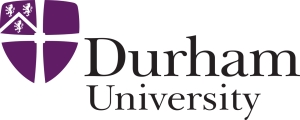
- This event has passed.
Who are “We the People”? Community beyond the state: Workshop – “We the People”
31st January 2019 @ 9:00 am - 1st February 2019 @ 5:00 pm

Workshop A: “We the People”. Co-organized by Dr Amy Russell (Classics) and Dr Richard Huzzey (History).
Participants include
- Dr Christopher Bonner (History, University of Maryland);
- Dr Sarah Campbell (History, Newcastle University);
- Dr Mike Finn (History, University of Exeter);
- Dr Emily Jones (History, University of Manchester);
- Professor Daniel Kapust (Political Science, University of Wisconsin-Madison);
- Professor Michèle Lowrie (Classics, University of Chicago and IAS Fellows);
- Dr Diego Palacios Cerezales (History, University of Stirling);
- Dr Dinyar Patel (History, University of South Carolina);
- Dr Mark Somos (Law, Heidelberg);
- Professor Justine Willis (History, Durham University)
What is the difference between a group of people and “The People”? This project brings together classicists, lawyers, human geographers, political scientists, and historians to ask how communities work in practice, across history and today.
The researchers involved in this project will interrogate notions of belonging, citizenship, and sovereignty as well as investigating the role and operation of specific groups, from the populous Romanus to diaspora ethnic communities to ‘real Americans’.
In a time of rising populism and new forms of nationalism, when the British prime minister has said that “if you believe you’re a citizen of the world, you’re a citizen of nowhere”, these questions are relevant and timely. Yet the project also places a focus on history, including ancient history, as a way of challenging presentist assumptions, particularly concerning the role of the nation state. The communities to be explored are defined (among other ways) legally, politically, culturally, and spatially; only by bringing together an interdisciplinary group with expertise in each of these facets and more can they be investigated more thoroughly. The insights gained from this project have implications beyond academia, including in legal practice and international policy, but one major output will be a seven-figure ERC grant application.
The questions break down into two strands. Strand A, “We the People”, asks how the “people” who are the official holders of popular sovereignty have been defined and understood across time and space. Who controls access to this group, and who is excluded? What internal divisions exist within the unitary entity of “the people”? How does individual identity relate to belonging to this group?
Strand B, “Community Beyond the (Nation) State”, relates to communities larger or smaller than the state, or not defined by state boundaries. What other forms of legally or culturally defined community exist, and how do they relate to the legal entities defined by the state? What is the range of possibilities for citizenship, community, and belonging?
Each strand will be the focus of a two-day workshop, with invited speakers from around the world. There will also be weekly seminars presented by Durham and visiting academics.
The events are open to all, with no registration required: they are aimed at a scholarly but interdisciplinary audience. Four leading international academics have joined the project, and will be in Durham as Visiting IAS Fellows for January-March 2019: Professor Michèle Lowrie (Classics, University of Chicago); Professor Paul Pickering (History, Australian National University); Dr Michael Sevel (Law, University of Sydney); and Professor van der Wilt (Healthcare, Radboud University).
Contact [email protected] for more information about this event.
